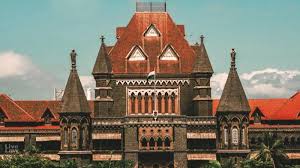Vidushi Vats
The Bombay High Court has reaffirmed the Rs. 51,000 compensation awarded to the mother of a 24-year-old man who tragically lost his life in a railway accident 44 years ago from a collision between a truck and a train engine.
The history of the case dates back to January 24, 1979. Maheboob, the deceased, was on board as a cleaner in a truck carrying sugarcane from a field. As they crossed a railway-level crossing gate situated between Nashik Road and Odha Railway Station, a reverse-moving train engine collided with the truck. Unfortunately, Maheboob passed away due to his injuries two years later.
Umraobi, his mother, asserted that the accident was a consequence of negligence on the part of the railway employees. She insisted that there were no signals or warnings provided by the railway staff at the level crossing gate to alert traffic, specifically the truck driver, about the oncoming train. Additionally, she contended that the railway engine was being operated recklessly and negligently. Umraobi argued that the gatekeeper was unaware of the approaching train and failed to issue a precautionary directive to the engine driver to halt before reaching the gate.
The Central Railway refuted the plaintiff’s allegations, contending that the accident was a result of
the truck driver’s negligence. They argued that the driver proceeded through the railway-level crossing gate despite receiving warnings from the gatekeeper. Additionally, they claimed that the driver did not possess a valid driving license. The civil court, however, ruled in favour of Umraobi, awarding her a compensation of Rs. 51,000/-. This decision has led to the current appeal.
During the trial, Sadanand Raje, the Divisional Engineer at the time of the incident, testified that the railway route in question was a super-fast track. He acknowledged the absence of signals at the Odha crossing gate, leaving train drivers unaware of its status. He also confirmed that the engine lacked a headlight at the tender end, with only one working buffer light out of two.
Raje further conceded that in case of any obstruction on the level crossing, the gatekeeper is required to display a red light signal indicating that the line is not clear. However, at the time of the accident, the gatekeeper did not provide such a signal to the railway engine.
Pandurang Kisan Kale, the Switchman on duty at the Nashik Road cabin during the incident, testified that he did not grant line clearance to the pilot of the train engine.
Ramchandra Nana Barve, the gatekeeper at the crossing when the accident occurred, stated that he had telephonic communication with the Nashik Road cabin and was informed that no train was approaching. He opened one side of the gate, but upon the train’s arrival, he shouted and displayed a red lantern to signal the truck driver to stop. Unfortunately, the truck did not halt in time, resulting in the tragic accident.
Justice PK Chavan observed that the accident was caused due to the negligence of railway staff.
“It is clearly an act of negligence on the part of the employees of the appellants as it appears from the evidence that there was no proper communication between the switchman and the gateman as well as by the concerned Railway station. Had there been proper communication, there would have been an advance intimation to the gateman about the passing of the engine”, the court observed.
The High Court pointed out that the appellants failed to offer any clarification regarding why the engine approached unexpectedly when the gateman had no knowledge of its presence.
As a result, the High Court rejected the appeal and upheld the trial court’s decision, stating that both the Union of India and the Central Railway were collectively responsible for compensating the mother of the deceased.

